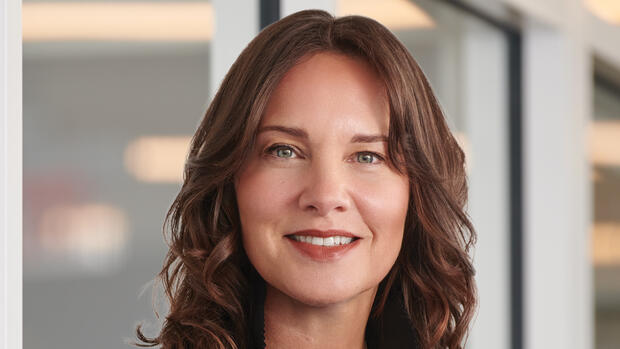Irina Hemmers should strengthen the office in London and expand its presence in Europe.
(Photo: Thomas Bravo)
Frankfurt Thoma Bravo wants to invest more in Europe. The private equity group is one of the most important companies when it comes to buying and selling technology companies.
It was not until the end of 2022 that he launched several new funds, including the “Thoma Bravo Fund XV” with $ 24.3 billion for new acquisitions and investments, primarily with a view to software companies.
The new funds are now to be used increasingly in Europe. The company has been active in the USA for around 20 years and the focus on the software sector has proven to be a stable and highly profitable business model, says Irina Hemmers, partner at Thoma Bravo, in an interview with the Handelsblatt.
In the past decade there has been an average of one deal per year in Europe. “These transactions have developed well, now we want to invest more in Europe and also in Germany. It has been shown that it is good if you are also on site. In the future we can imagine three to four deals a year,” says Hemmers, who is to strengthen the office in London and expand the presence in Europe.
“In Germany, we are particularly impressed by the highly qualified management teams in the software companies,” says the manager. Over the past 20 years, Thoma Bravo has invested in 440 companies, taking minority and majority stakes, with a combined enterprise value of $250 billion.
Lower valuations attract financial investors
In the boom years from 2019 to 2021, Thoma Bravo only invested very selectively. Valuations are now down and there are attractive opportunities. “Depending on the profitability of the business model, the discounts are up to 30 or 40 percent,” says Hemmers, emphasizing the opportunities offered by lower entry prices.
For Thoma Bravo, preferred market segments for investments include digitization in the healthcare sector – such as software for hospitals – and software solutions for financial and budget planning. When it comes to cybersecurity, the group claims to be one of the leading tech investors in the USA.
“Depending on the profitability of the business model, the discounts are up to 30 or 40 percent. Irina Hemmers, partner at Thoma Bravo
A few days ago, the financial investor was able to announce a deal worth billions, it is one of the largest transactions in the year to date in an otherwise rather depressed business with mergers and acquisitions (M&A). The operator of the US technology exchange Nasdaq announced the takeover of the financial software provider Adenza for 10.5 billion dollars. The previous owners around Thoma Bravo are to receive about half in cash. The remainder is to be settled in Nasdaq shares.
Adenza sells software to banks, asset managers and exchange operators that helps, among other things, to meet regulatory requirements or manage risks. In Germany, there have been a relatively large number of deals in the technology sector so far this year. According to the analysis company Refinitiv, there were 286 transactions worth 7.9 billion dollars, and the sector’s market share was a good 22 percent.
Buyers from the USA dominated. “US corporations tend to pay more for technology companies, especially in the AI space. Future prospects are also taken into account here,” says Harald Christ, Managing Director of the consulting firm Christ & Company Consulting GmbH.
Integrate artificial intelligence into existing business models
Hemmers has precise ideas on how to capitalize on artificial intelligence (AI): “At Thoma Bravo, we don’t see artificial intelligence in isolation. Rather, AI creates new potential for existing applications, we integrate the new functionalities into already proven software,” says the Thoma Bravo manager, who started her career at the management consultancy McKinsey and then worked for private equity companies.
Of course, one also looks at possible disruptions to business models through AI before investing. Companies that rely on manual and repetitive activities are of course under pressure from technological developments in this area.
Hemmers currently counts the nervous stock exchanges and the shortage of financing as the greatest risks. One sees great opportunities for this in the current market situation. “Entry prices are falling and the reduced number of transactions allows us to examine all business models even more deeply and in detail.”
More: OpenAI expands AI functions and significantly lowers prices
